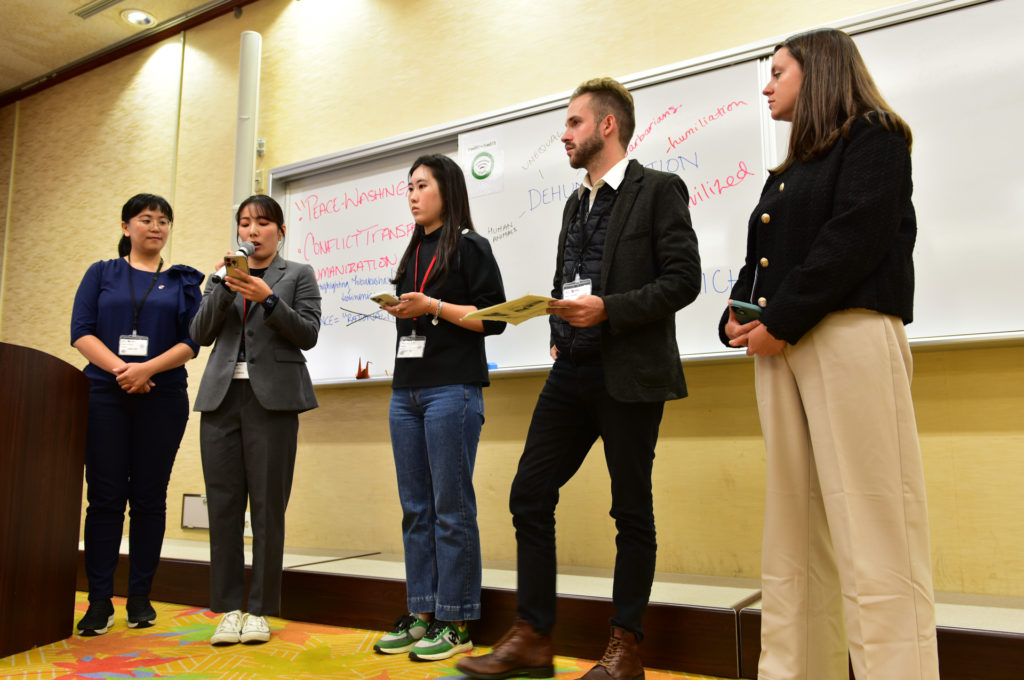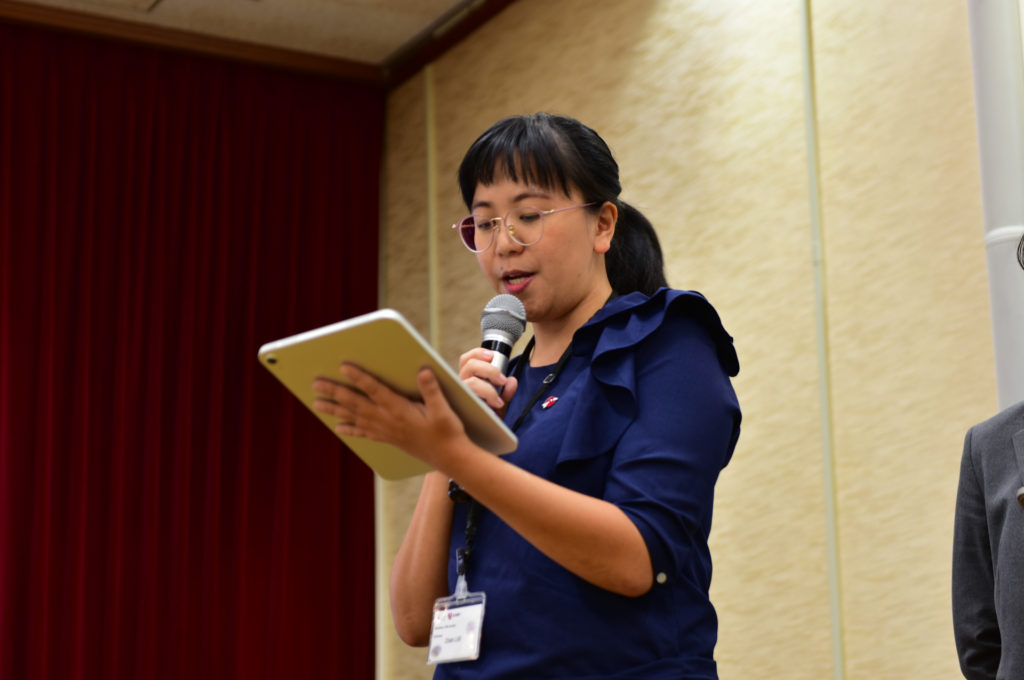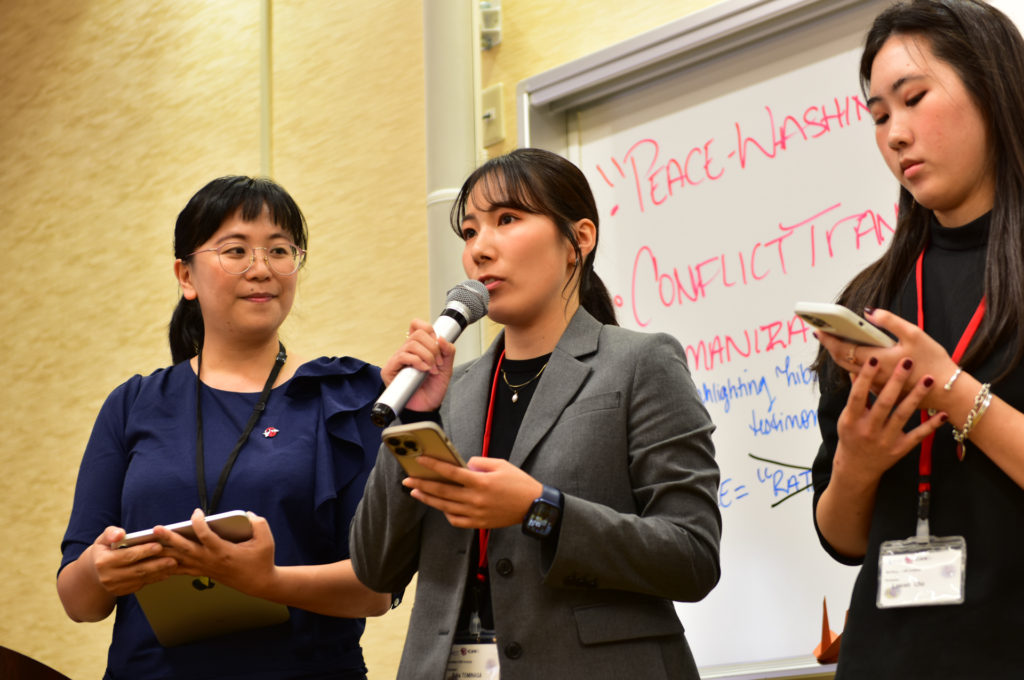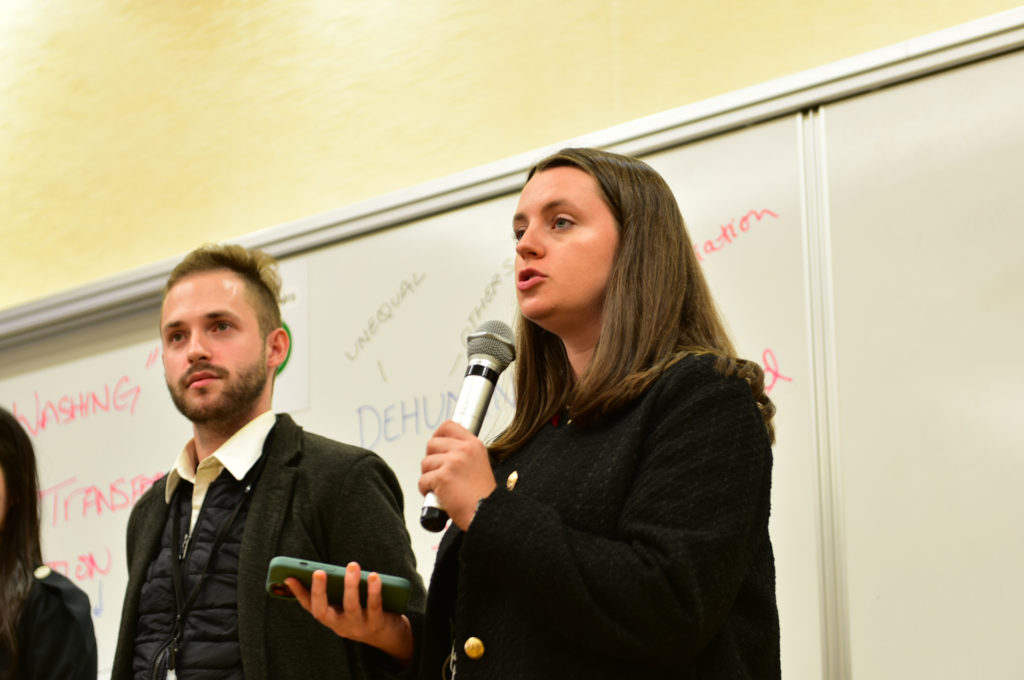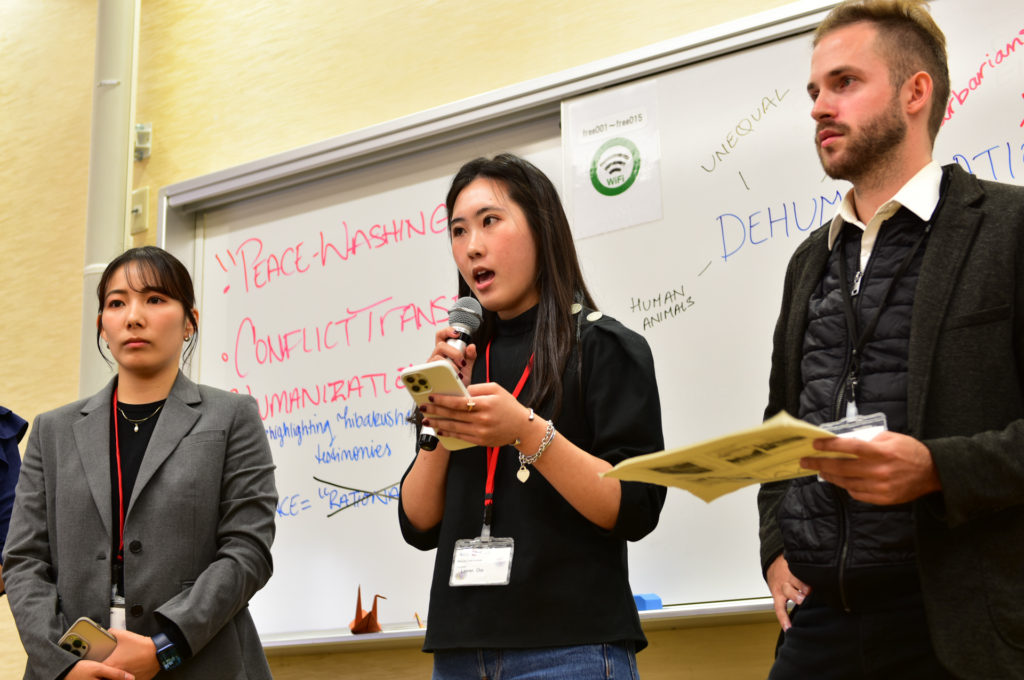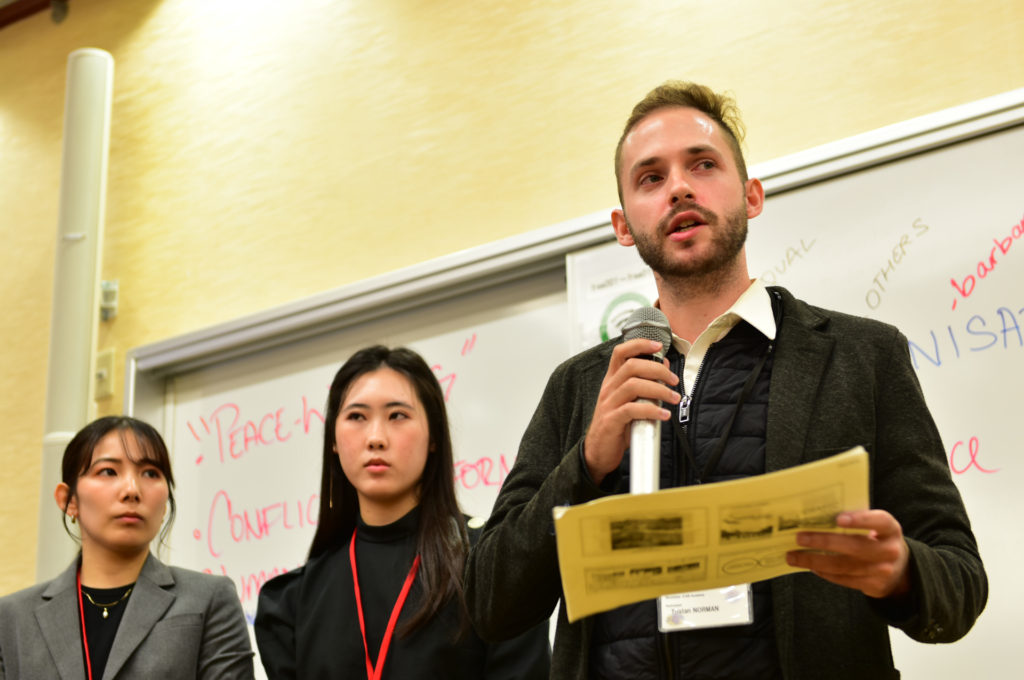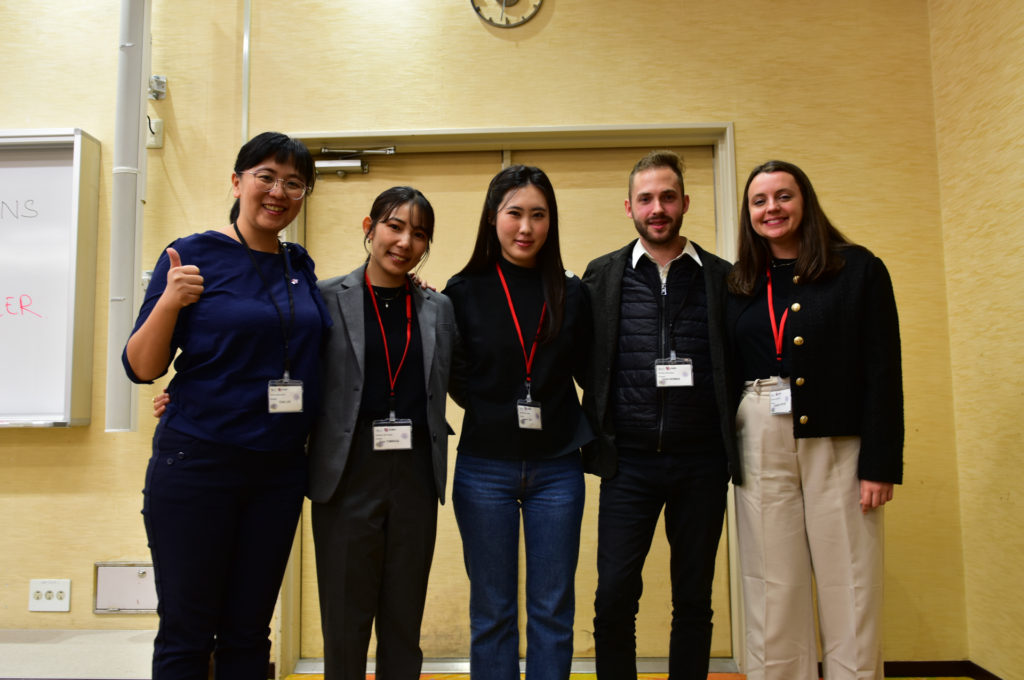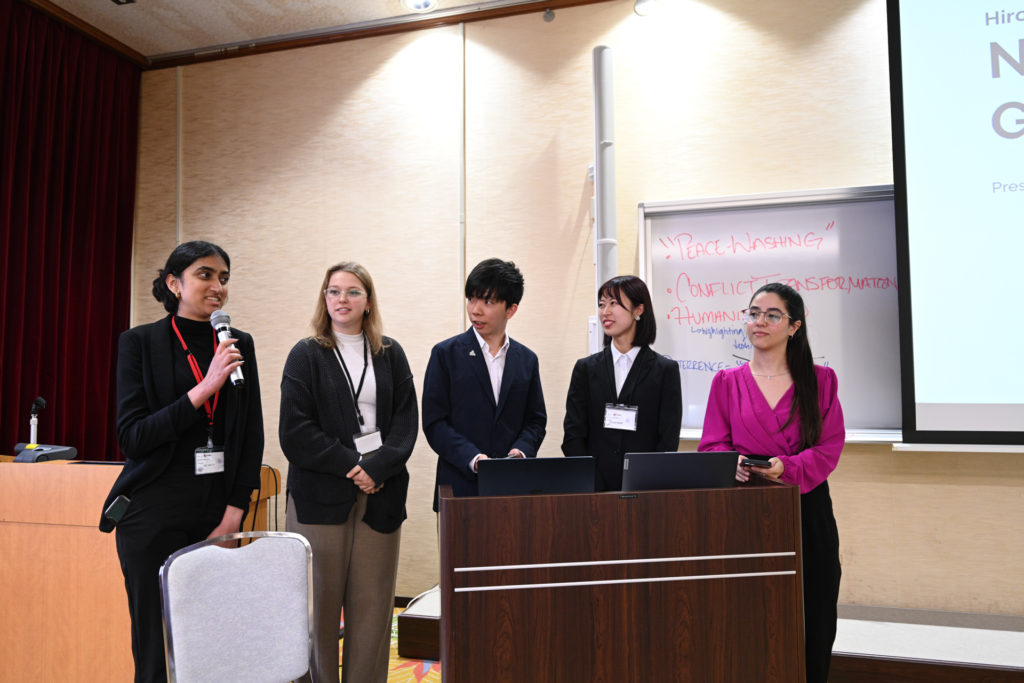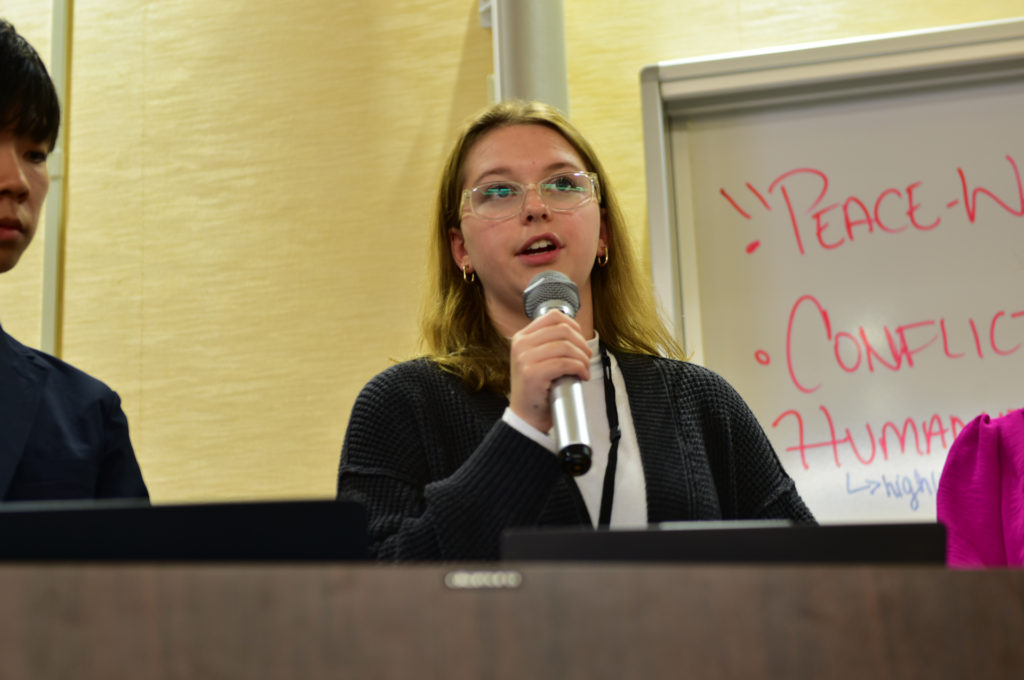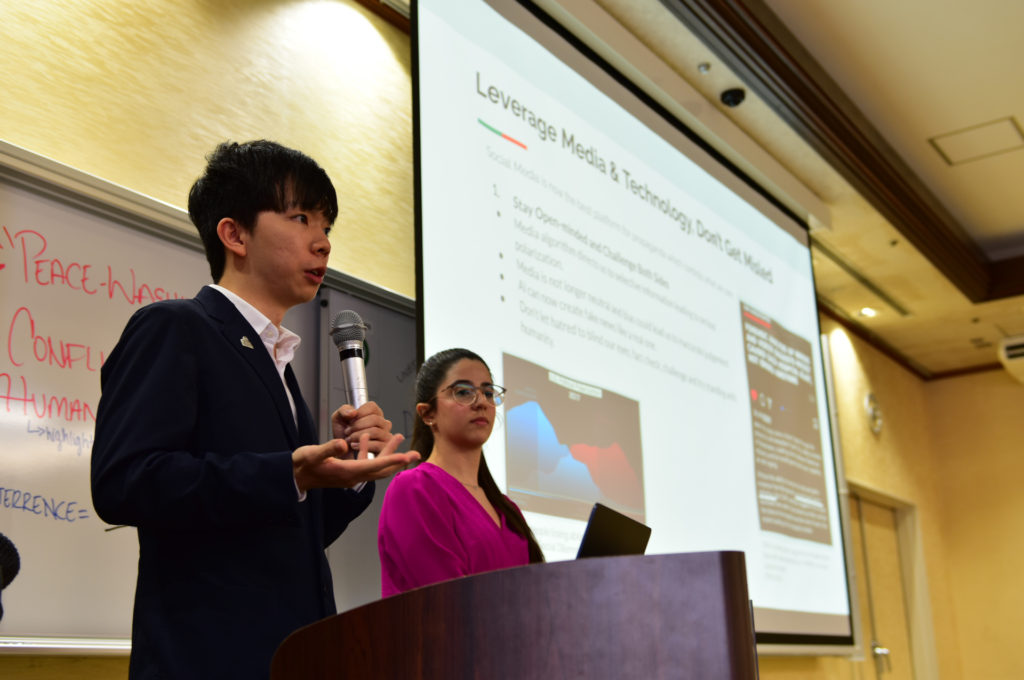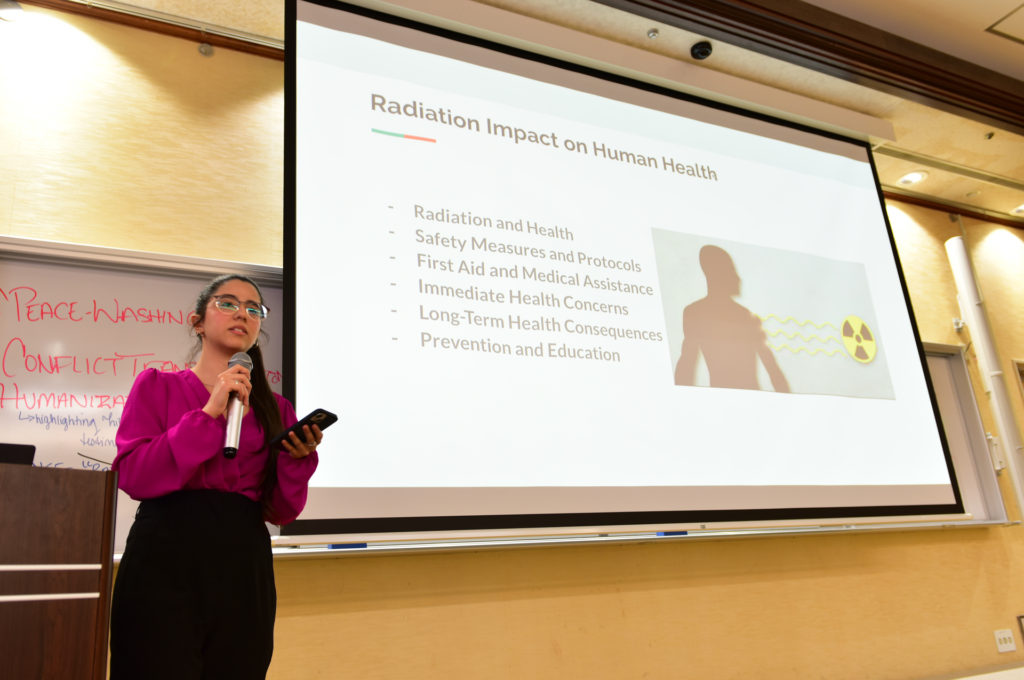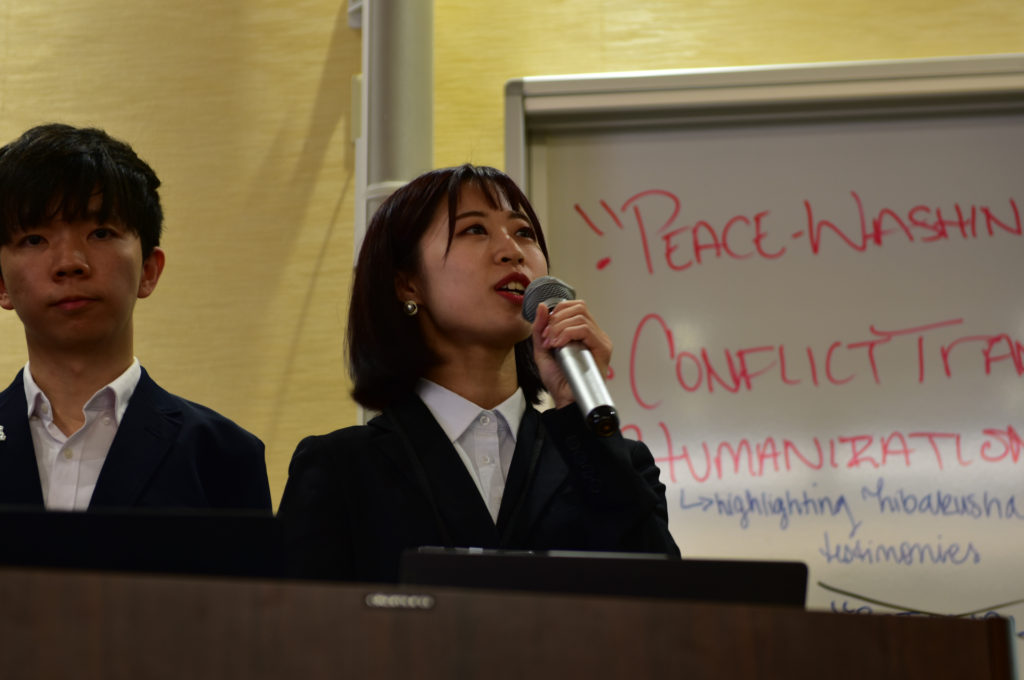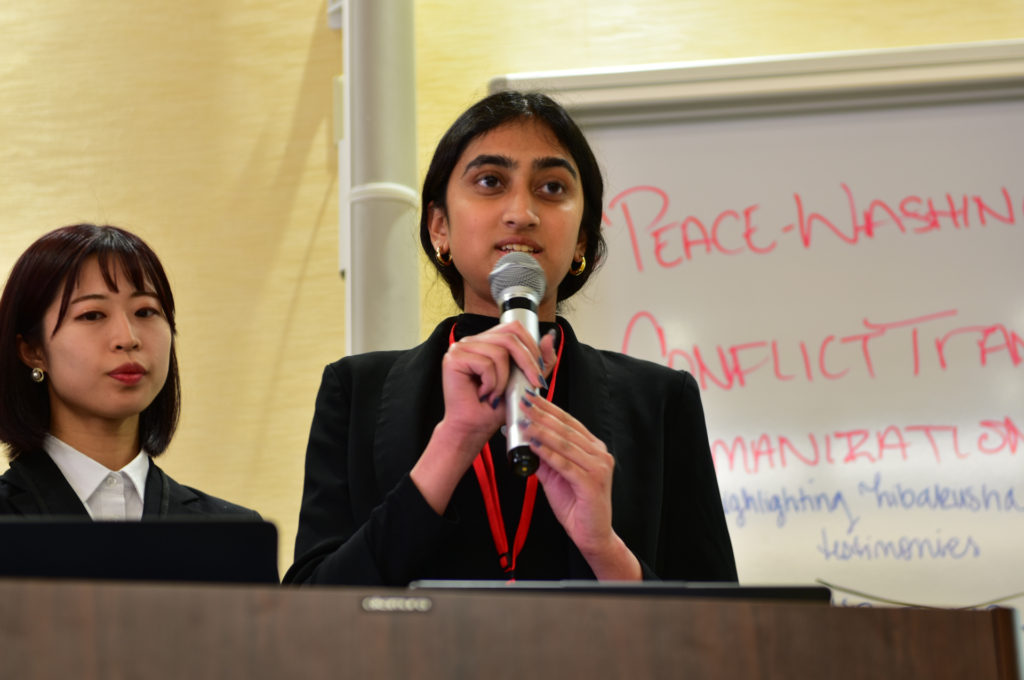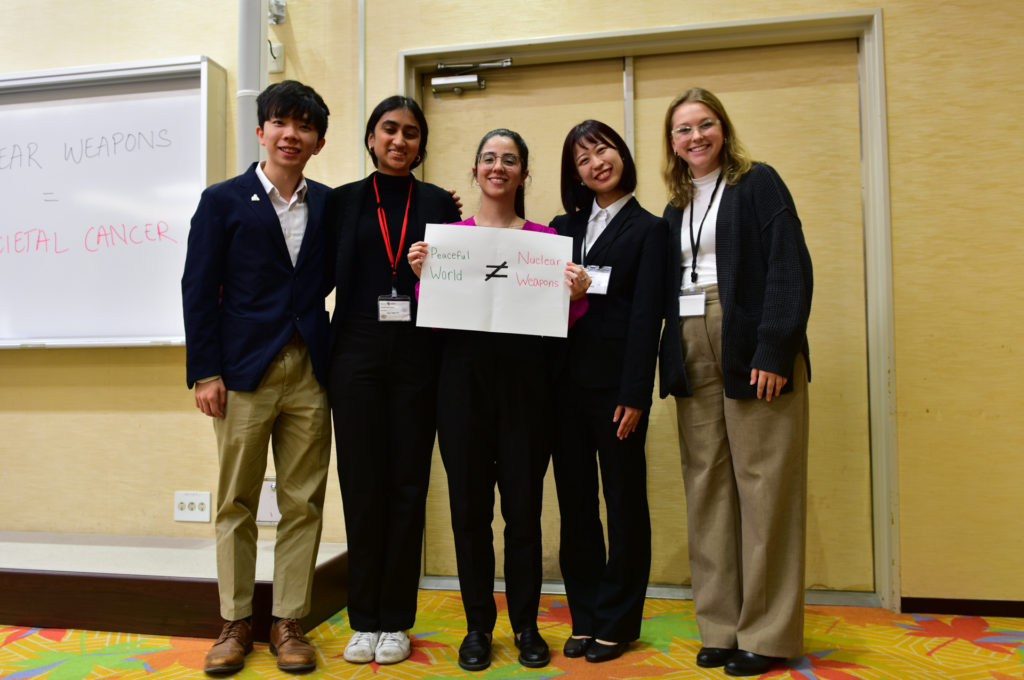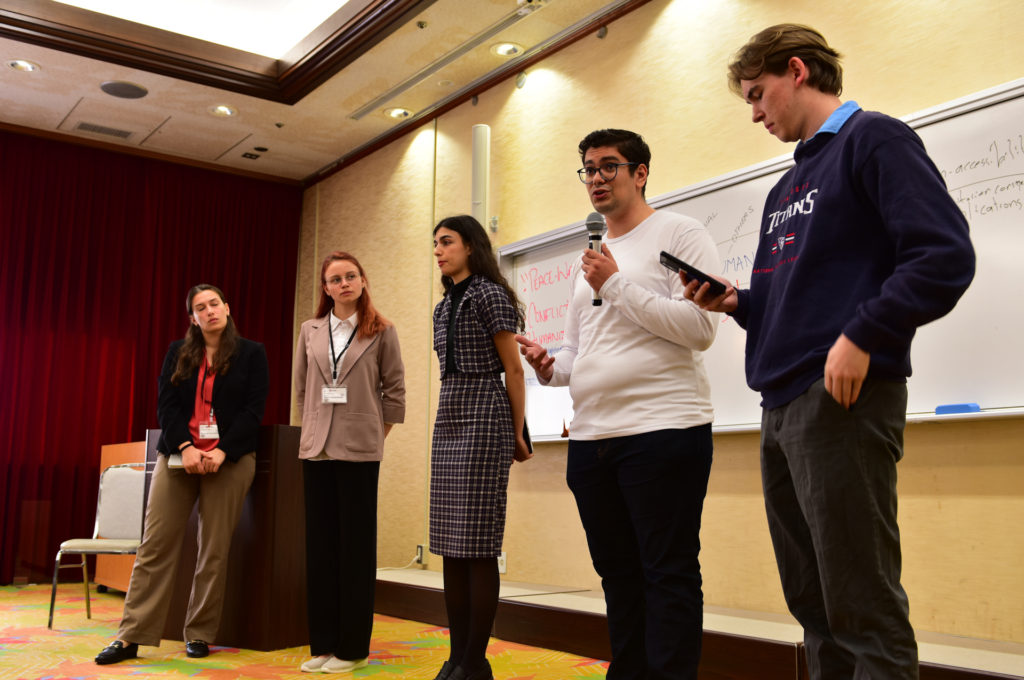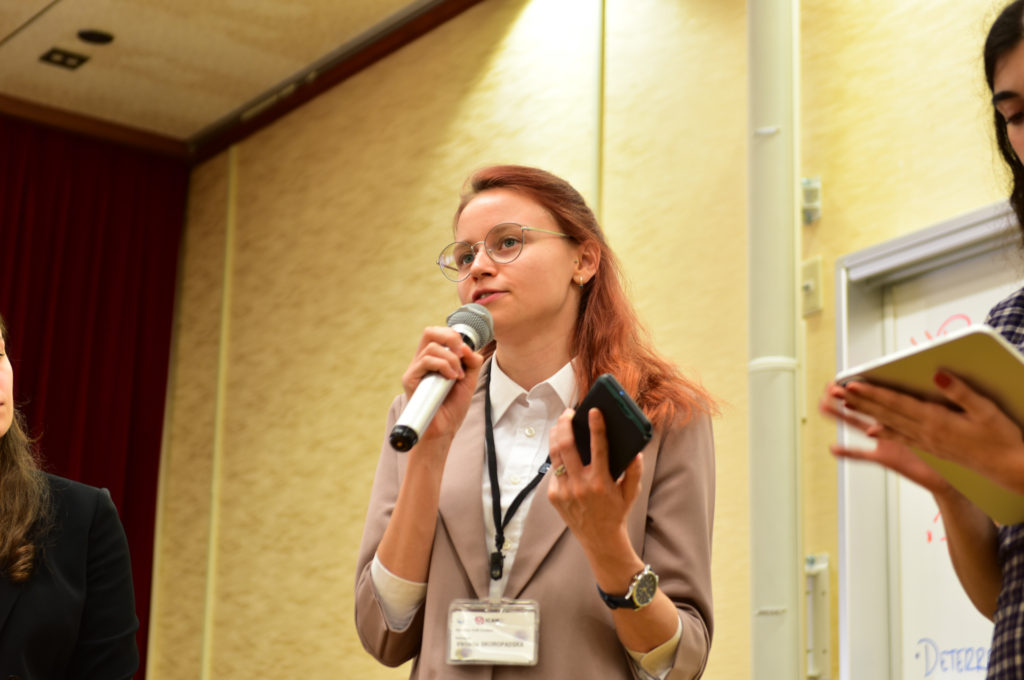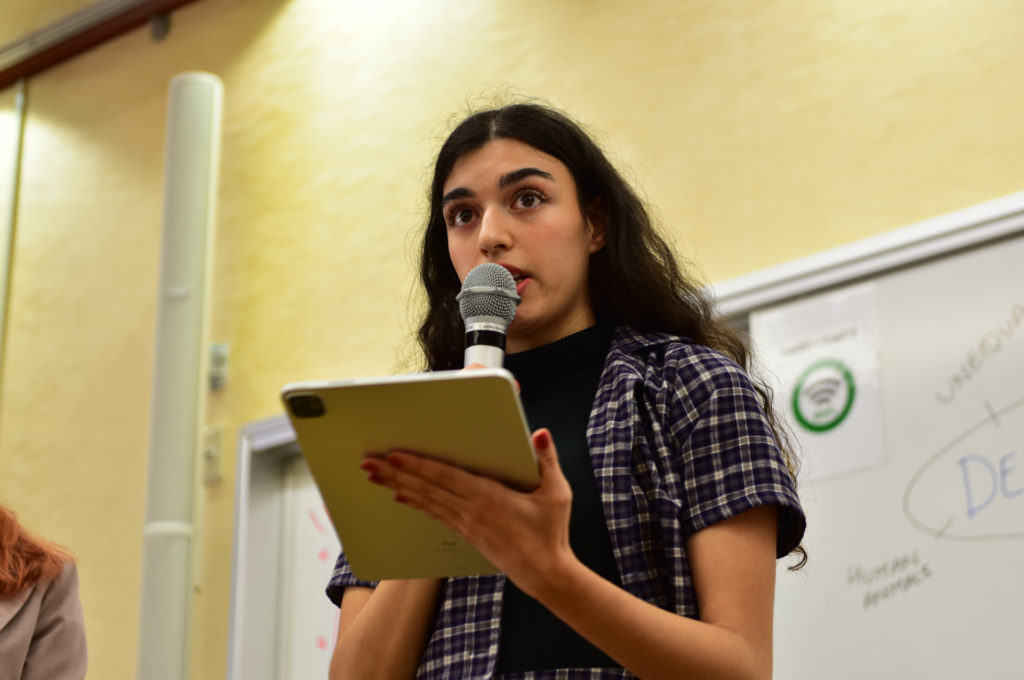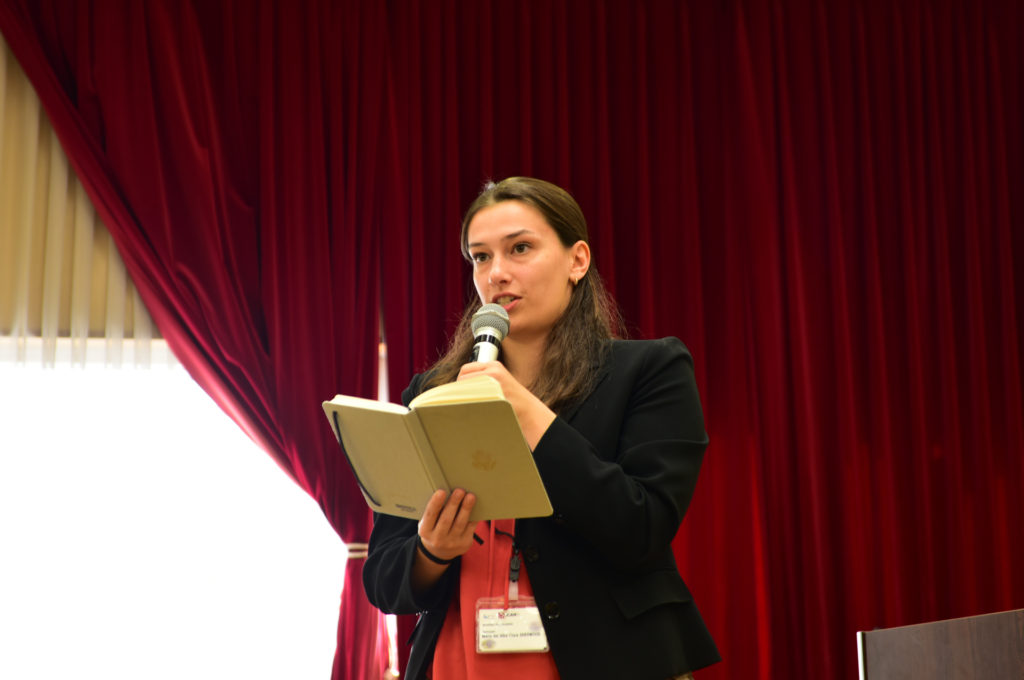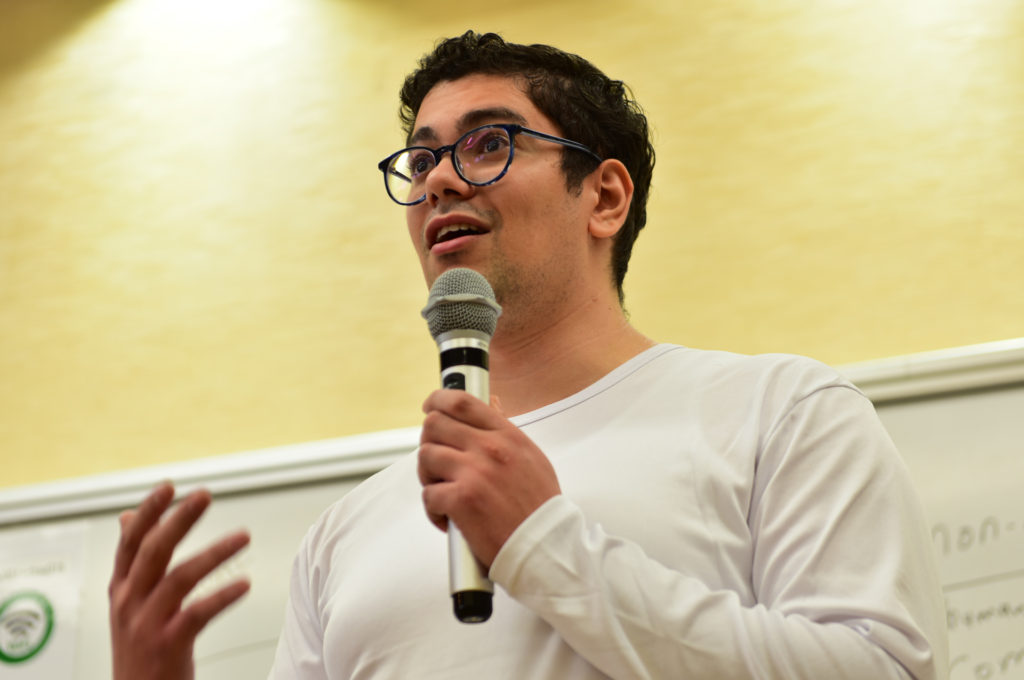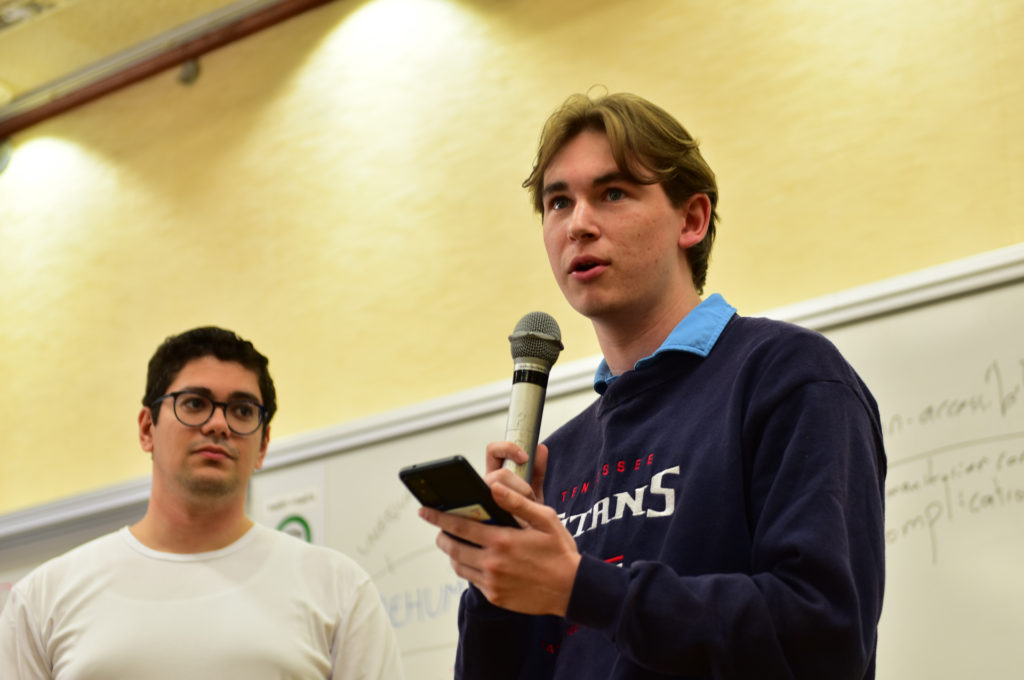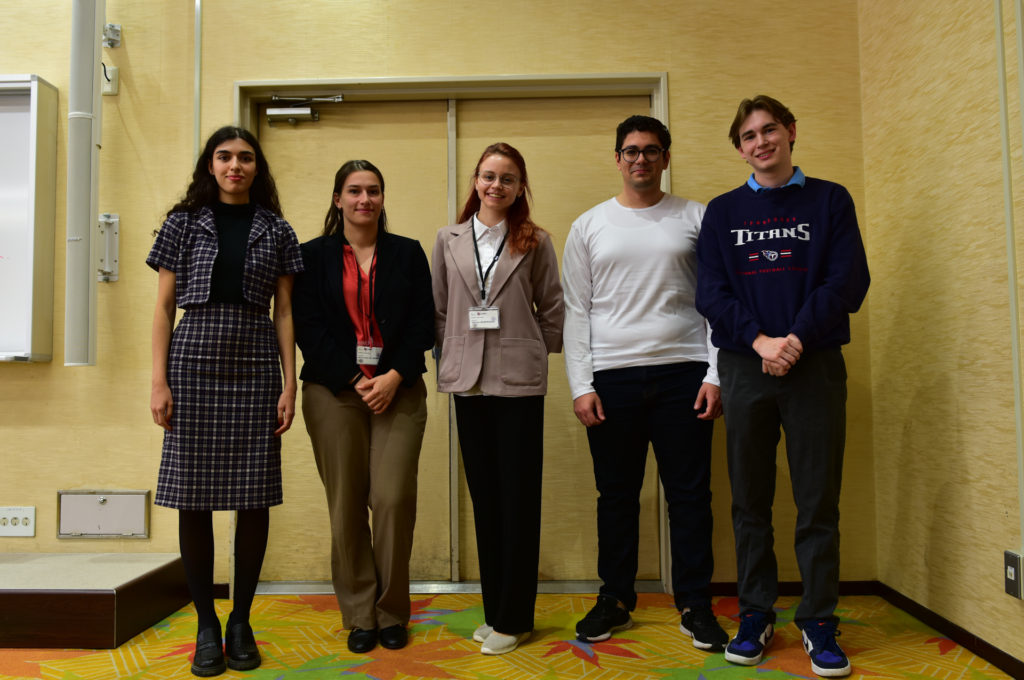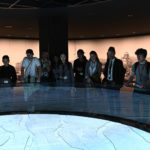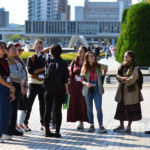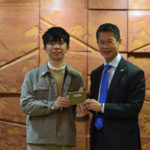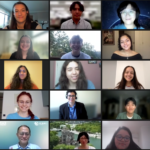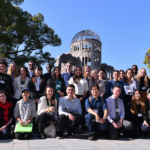Hiroshima-ICAN Academy on Nuclear Weapons and Global Security 2023 Hiroshima Session Day4
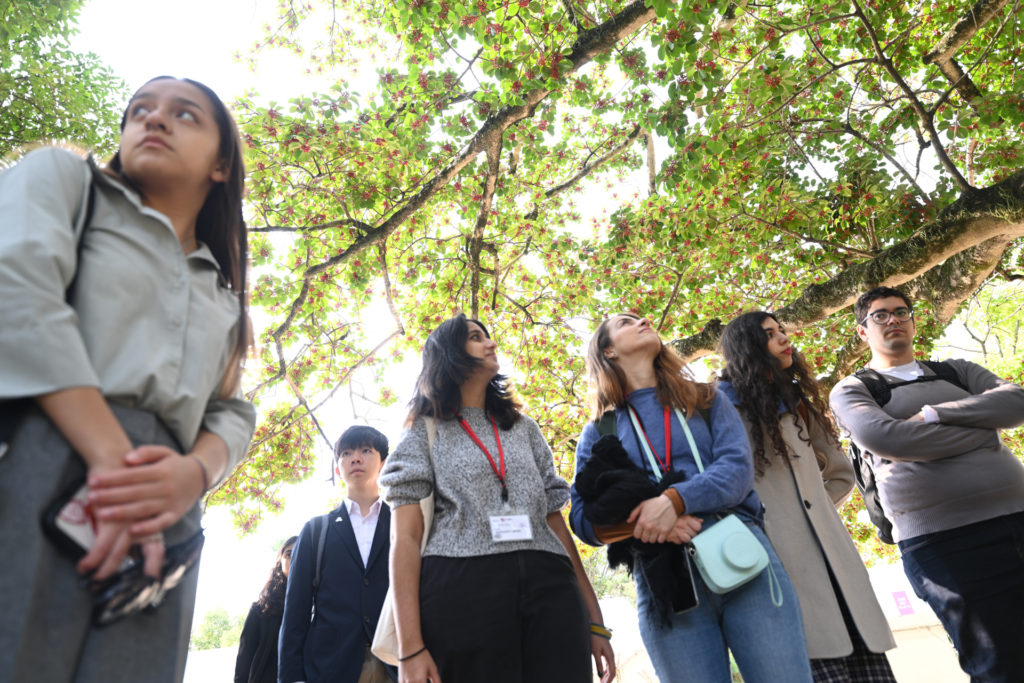
○ Day 4 program
・(For those interested) Guided tour of A-bombed trees (at Hiroshima Castle)
・Presentation of training results (open session)
The four-day program of the Hiroshima-ICAN Academy finally reached its final day.
On this day, those who wished to participate gathered early in the morning and headed to Hiroshima Castle to see the A-bombed trees.
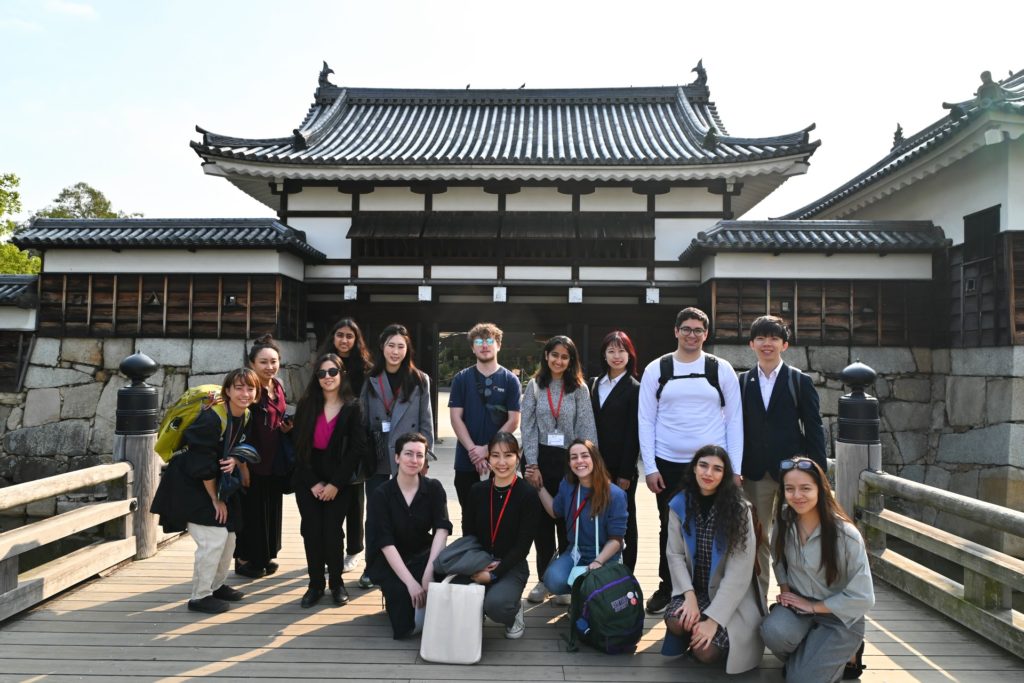
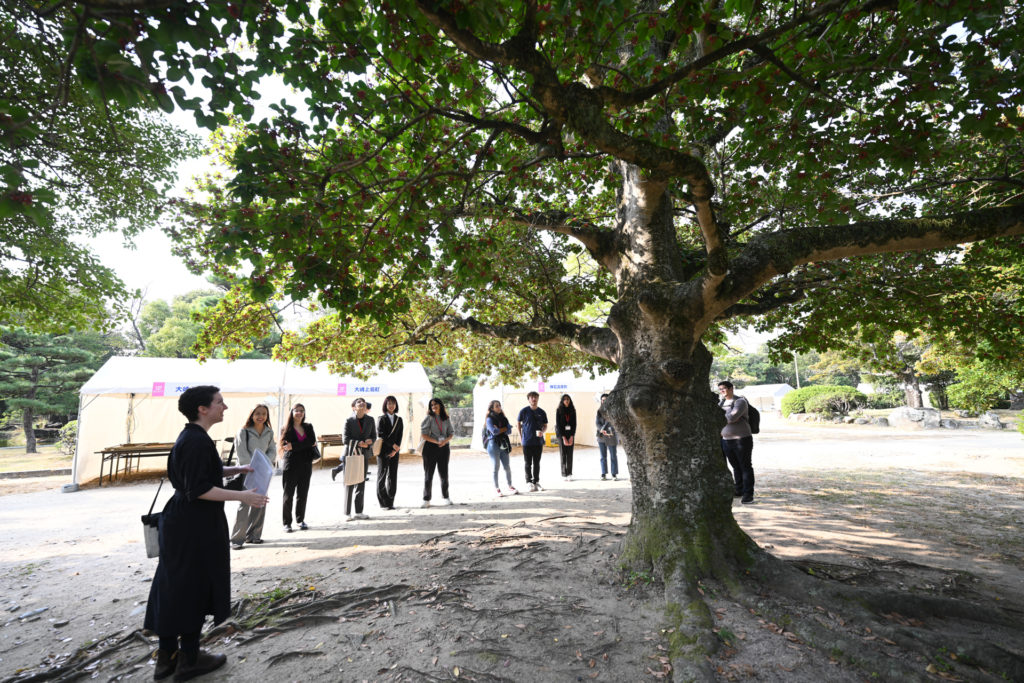
In the early morning, there were few people at Hiroshima Castle, and the peaceful atmosphere allowed us to take our time to look around the A-bombed trees. After the atomic bomb was dropped, the entire area was a burnt field, and it was said that “not even a blade of grass or a tree would grow for 75 years.” In the devastated city of Hiroshima, the A-bombed trees that survived the blast and heat rays continue to tell the reality of the atomic bombing as “silent witnesses.”
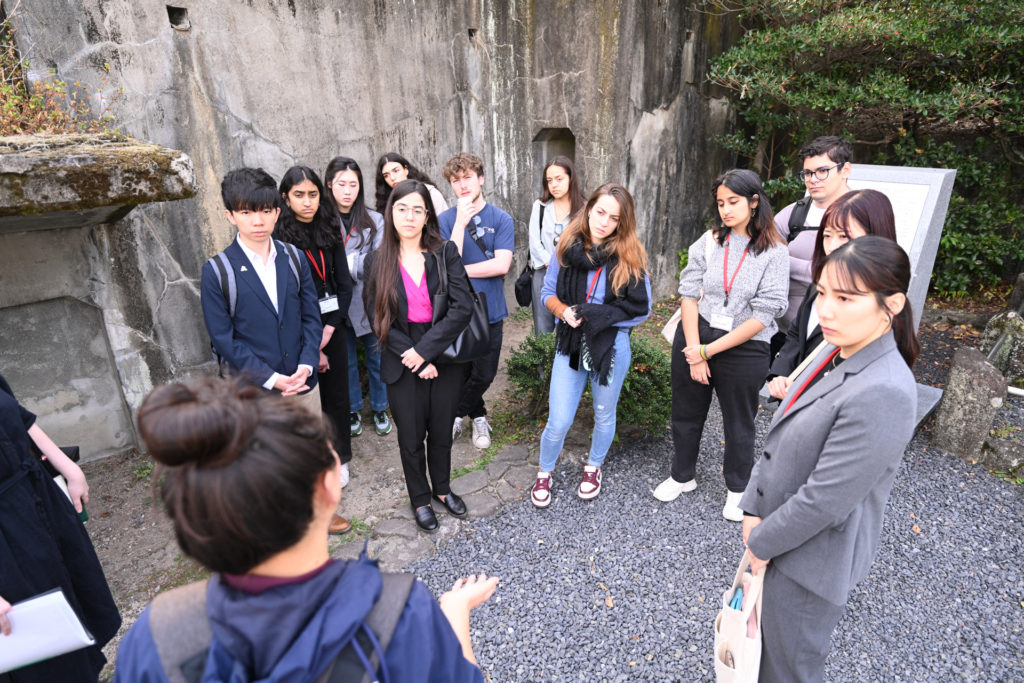
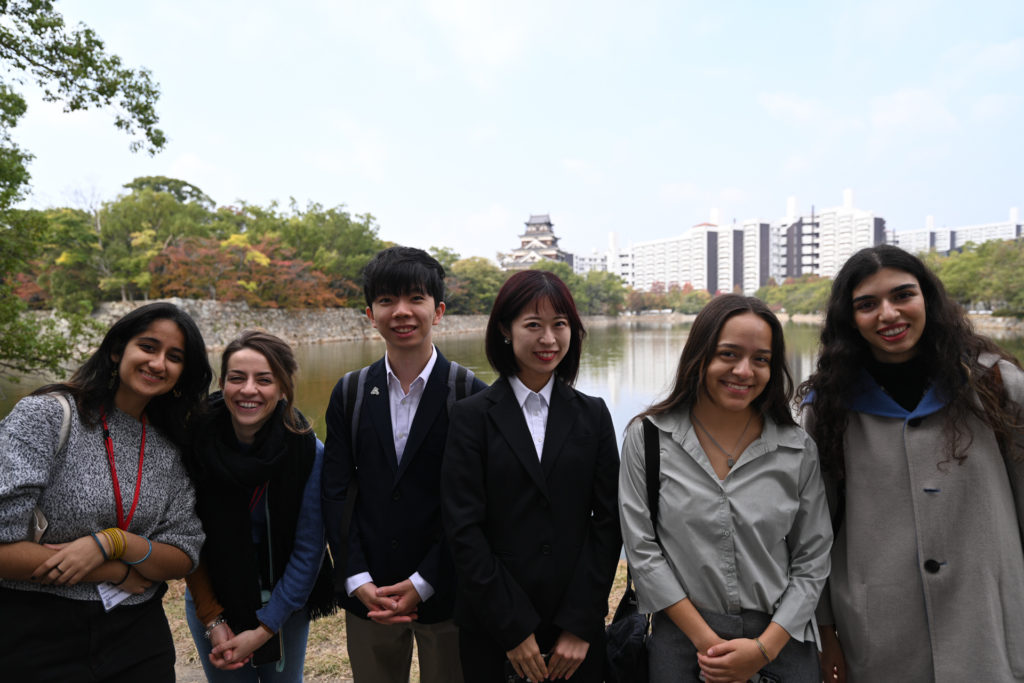
The participants also visited the A-bombed trees in the Peace Park and were impressed by the way they are carefully preserved throughout the city, with one participant saying, “I felt the desire for peace of the citizens of Hiroshima.”
Afterwards, all the participants joined together at the venue and prepared for the public session scheduled in the afternoon, where they would present the results of the training. Divided into four groups, the participants reflected on what they had learned in Hiroshima this time and eagerly discussed which items left a lasting impression on them and how they would apply what they had learned in the future.
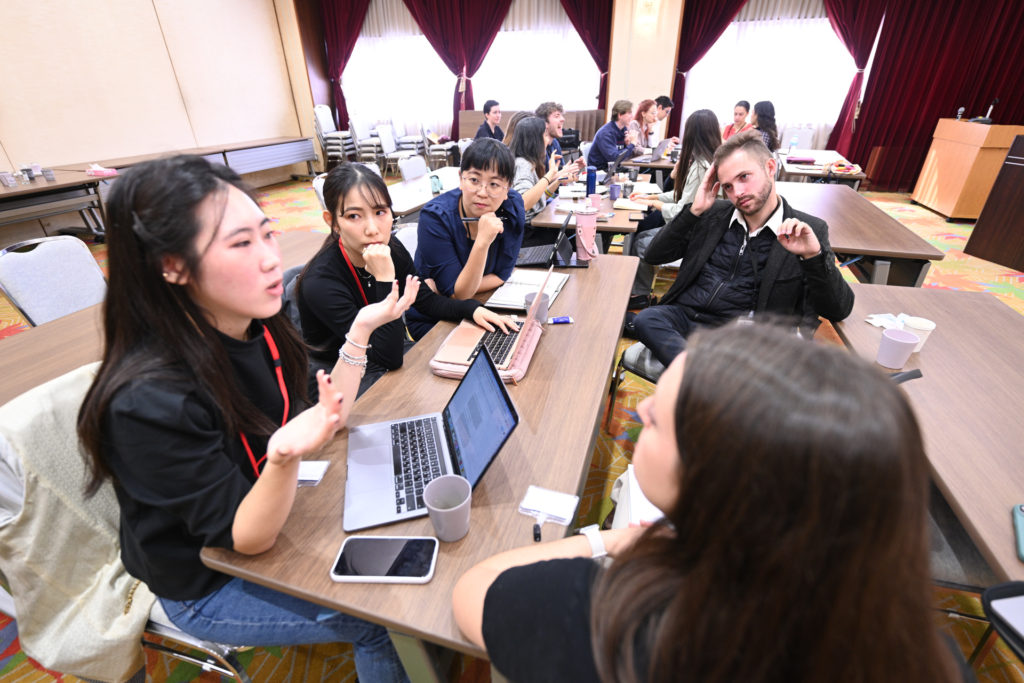
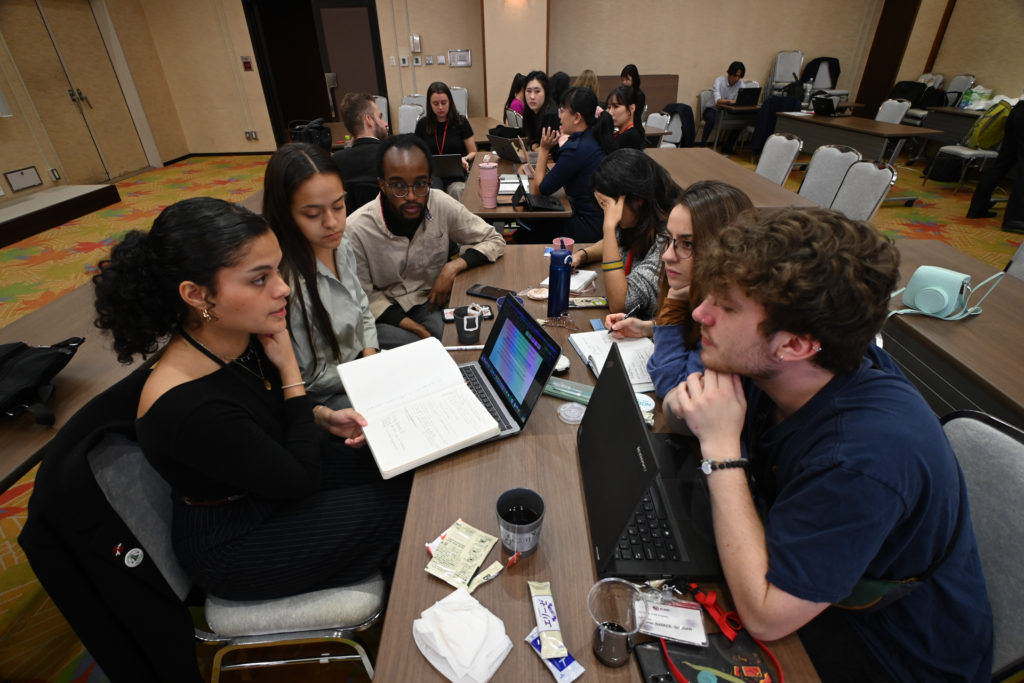
In the afternoon, the presentation of the training results in the open session finally began. Participants were divided into four groups and each group gave a presentation.
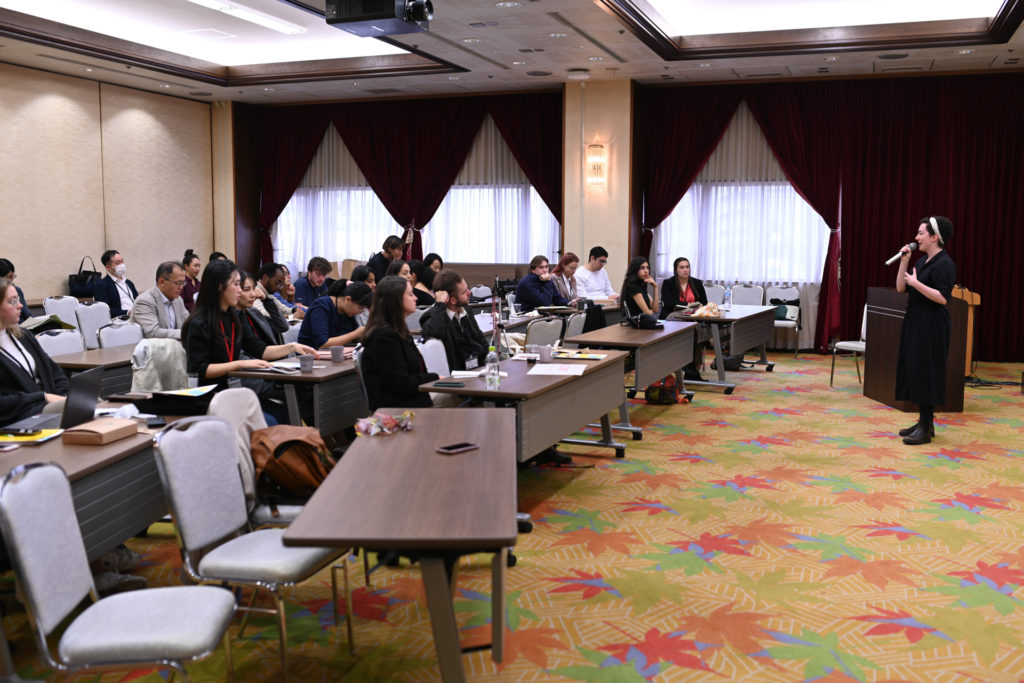
The first group likened the logic of nuclear deterrence to patriarchy and argued that it is based on Western rationalism, which is rational and therefore at odds with emotion, so that we can all have our own ideas and arguments. The first group, therefore, said that it is important to think about the relationship between the problems currently faced by each community and global risks and to discuss them from various perspectives, and called for the need to remove “(social) cancers” such as the damage from nuclear testing that former colonies and countries in the Global South are suffering from. To this end, the first group shared the stories of the countries involved and the global hibakusha (survivors of radiation exposure) there, who are marginalized from international discussions, and stressed the importance of discussion and exchange among various positions and communities in order to break the status quo that relies on nuclear deterrence.
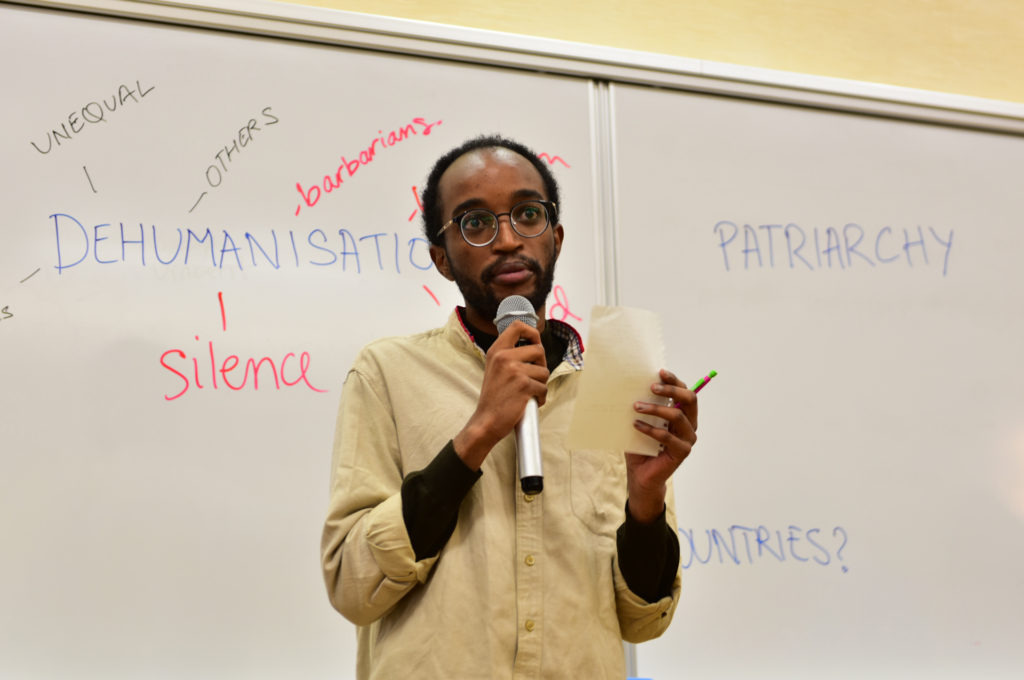
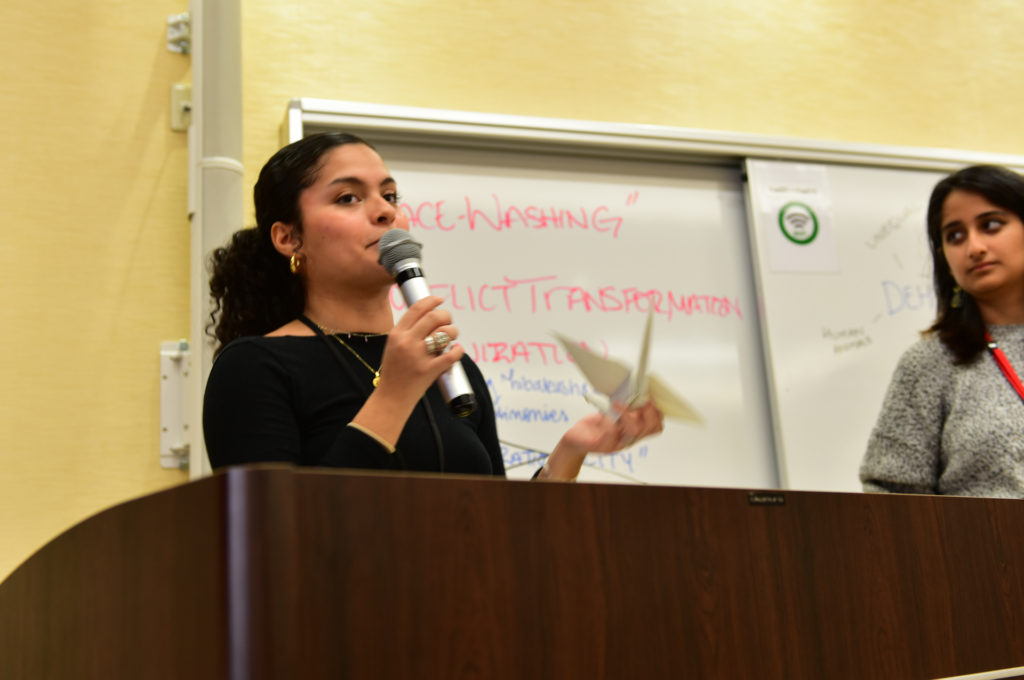
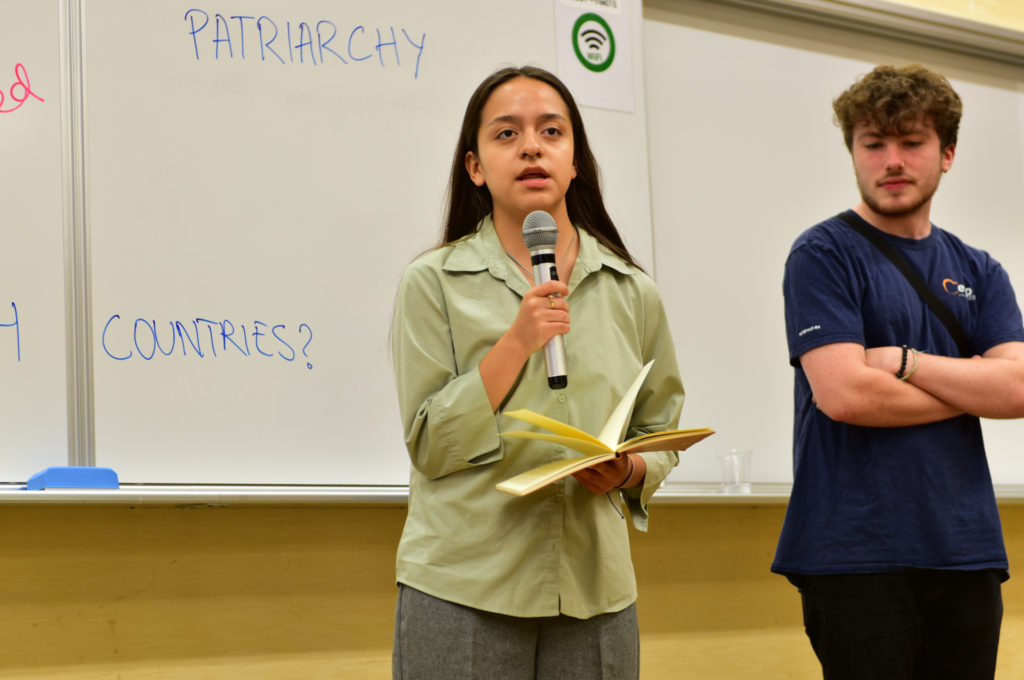
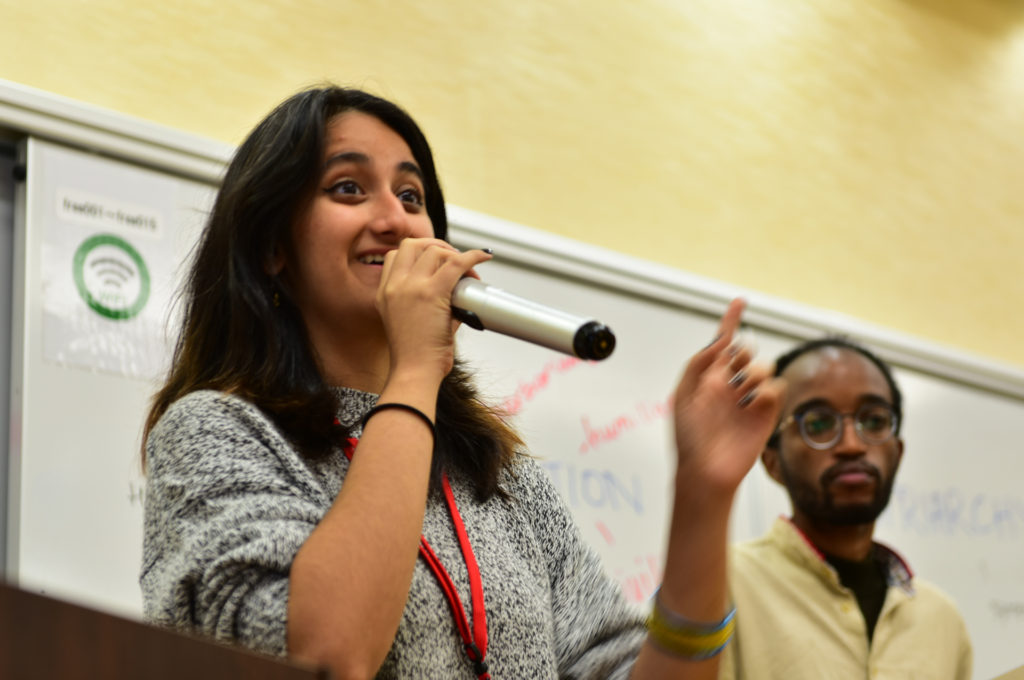
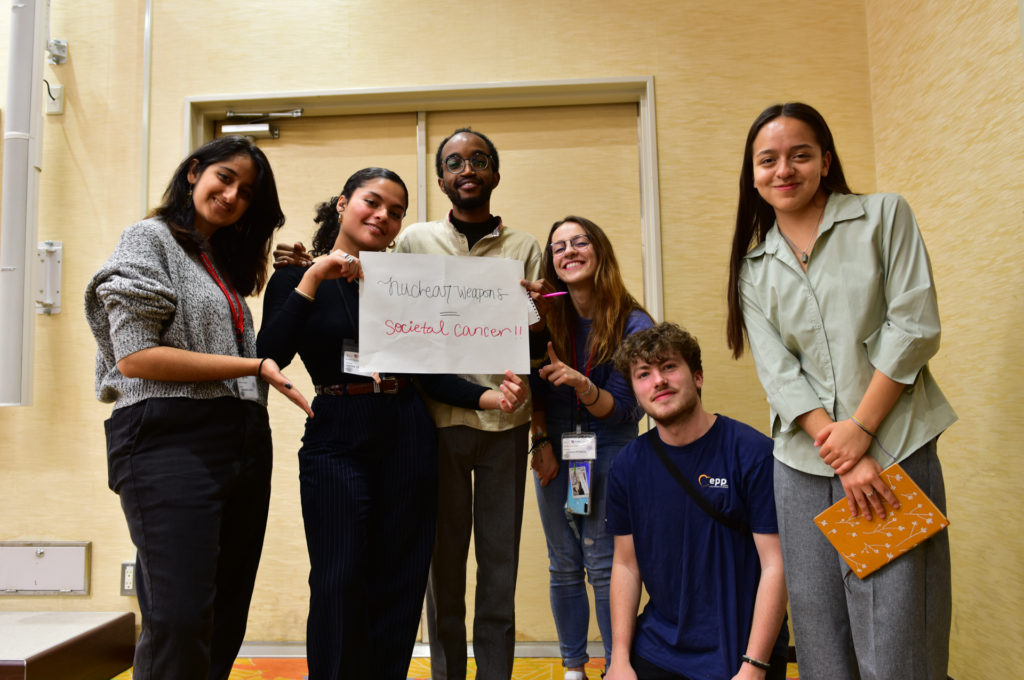
The second group began by discussing the importance of communicating with various players and sharing their concerns and ideas, based on their experience of meeting with hibakusha (survivors of either of the atomic explosions at Hiroshima or Nagasaki in 1945) and Hiroshima politicians at this year’s Academy. The second group then pointed out that the issue of nuclear weapons has been ignored compared to issues such as climate change, but that it is not an issue only for the countries concerned, but one that all people must be involved in, as it has serious effects worldwide, including radioactive fallout. Therefore, the second group argued that combining emotional aspects, such as human stories of the effects of nuclear weapons, such as the experiences of hibakusha, with the political and data aspects of the nuclear issue would not only provide a more comprehensive understanding and deepen empathy and connection to the issue, but would also serve as an important catalyst for positive change and, as a result, encourage positive change within organizations and by policy makers. In addition, the second group emphasized that without nuclear disarmament, there can be no sustainable development and security.
The third group began by describing the harmful effects of nuclear weapons, citing the immediate and long-term human and environmental consequences of nuclear explosions, based on the stories of hibakusha and the global hibakusha caused by nuclear tests they had heard at the Academy, and then listed what they could do: (1) use social media and mass media, and (2) continue their own peace-related activities. In addition, the third group recognized the importance of TPNW, especially Article 6, “Appropriate assistance to victims of nuclear weapons and restoration of contaminated areas,” in relation not only to the medical effects of radiation but also to the environmental effects. The third group then advocated the importance of TPNW and the importance of sharing information with those who do not come into contact with this issue on a daily basis.
The fourth group first cited as a problem the fact that people need advanced knowledge, including difficult terminology, when thinking about nuclear issues, and that discussions are led by the nuclear weapon states and leave the rest of the world behind, making it a high threshold for the general public. The fourth group recognized that in order for this issue to become a general topic, we need to rethink deterrence, new ideas to spread it, diverse perspectives, and learning, and that awareness of these issues will help us include others in the nuclear issue. The fourth group argued that the riskiest element in the world in which we live is nuclear weapons, and that the only way to reduce that risk and live in a safe world is through nuclear disarmament, the abolition of nuclear weapons, and the prevention of the future appearance of weapons of mass destruction of any kind. The fourth group described the importance of integrating nuclear weapons issues into their own lives, citing efforts to make them accessible, such as by adapting difficult topics for children and translating complex ideas into their respective native languages, as things that can be done to achieve this goal.
After all groups had finished their presentations, Mr. Akira Kawasaki, an ICAN International Steering Committee member, provided feedback and comments.
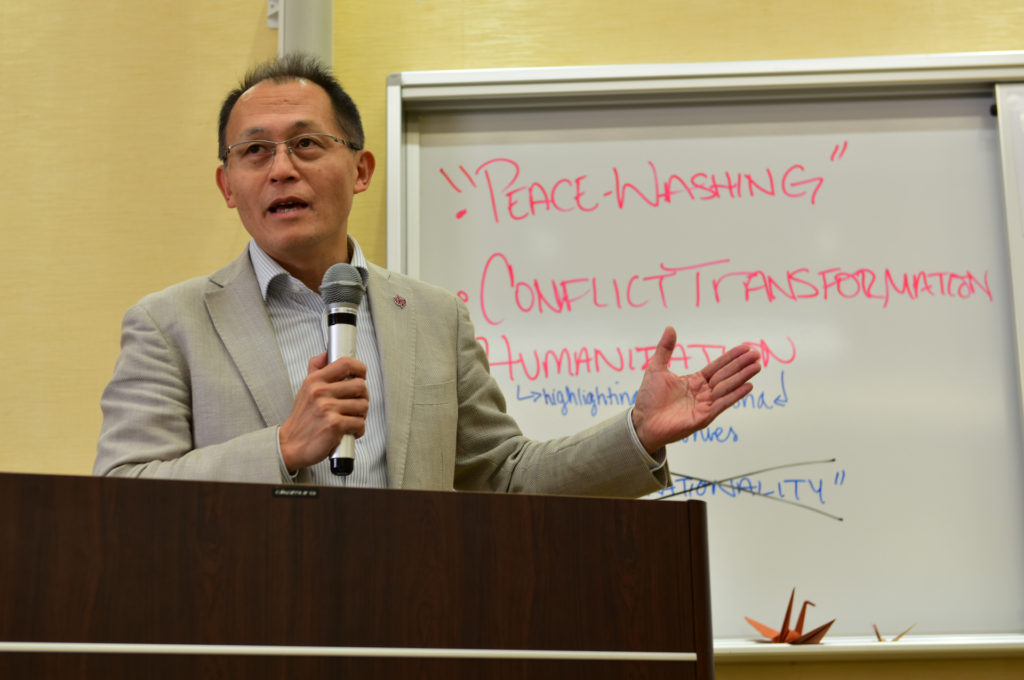
Mr. Kawasaki commented that he was impressed by the unique ideas of all the groups, and praised the participants for their sincerity and awareness of the issues they were addressing.
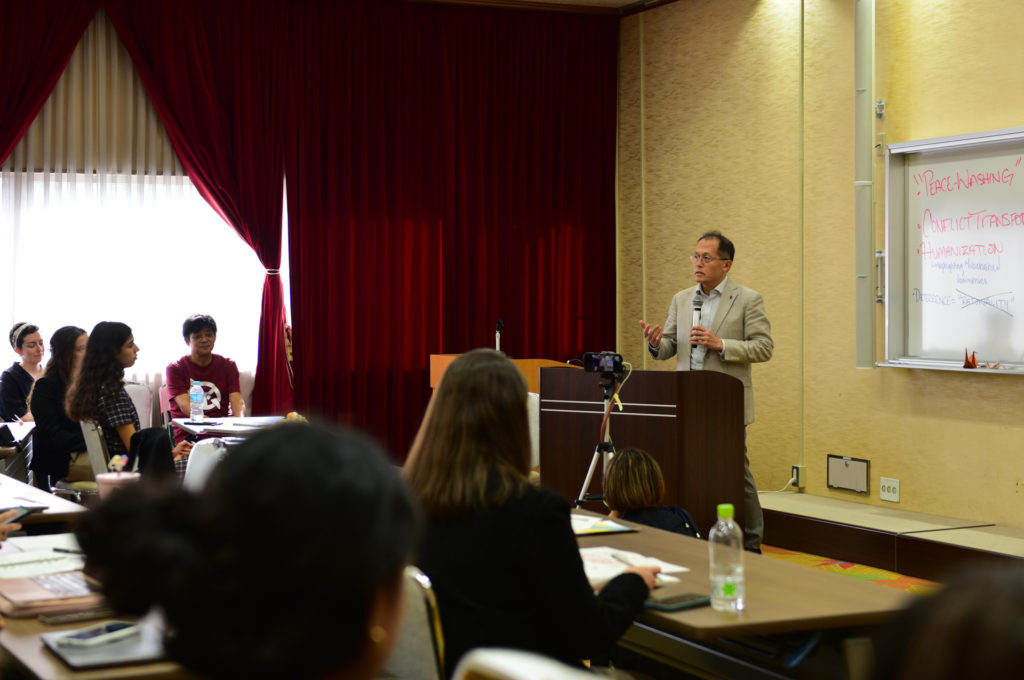
He also noted that many of the group members expressed a desire to take what they had heard and learned back home and talk about it, and he urged the participants to continue to do so, as this is important for building awareness of nuclear issues and fostering momentum for nuclear abolition.
Although the study period in Hiroshima was only four days, one of the participants said, “It was a life-changing experience. It has been one of the biggest impacts on my life so far.”
Each participant had some knowledge of the atomic bombing of Hiroshima, having learned about it in school. However, what they actually saw and felt in Hiroshima seemed to resonate with each participant.
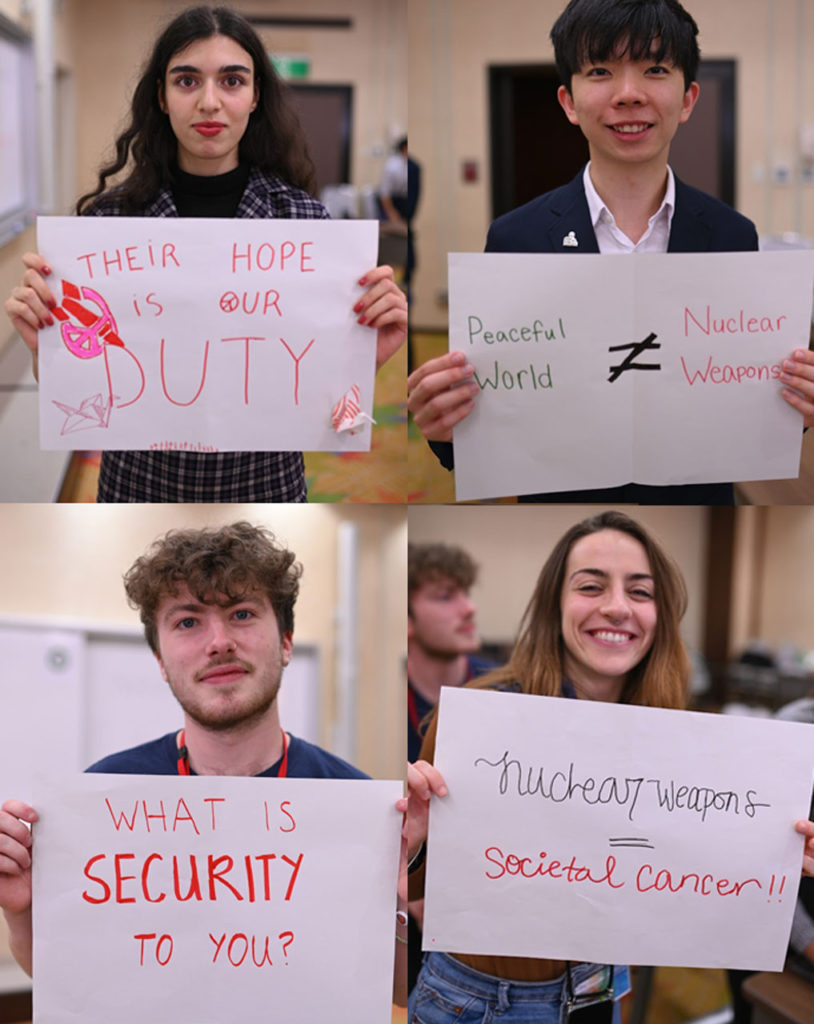
The participants will return to their respective countries, where they will share their experiences in Hiroshima with their families and others around them. We hope that this will help spread awareness of nuclear abolition in their respective countries, even if only a little, and lead to a change in global consciousness.
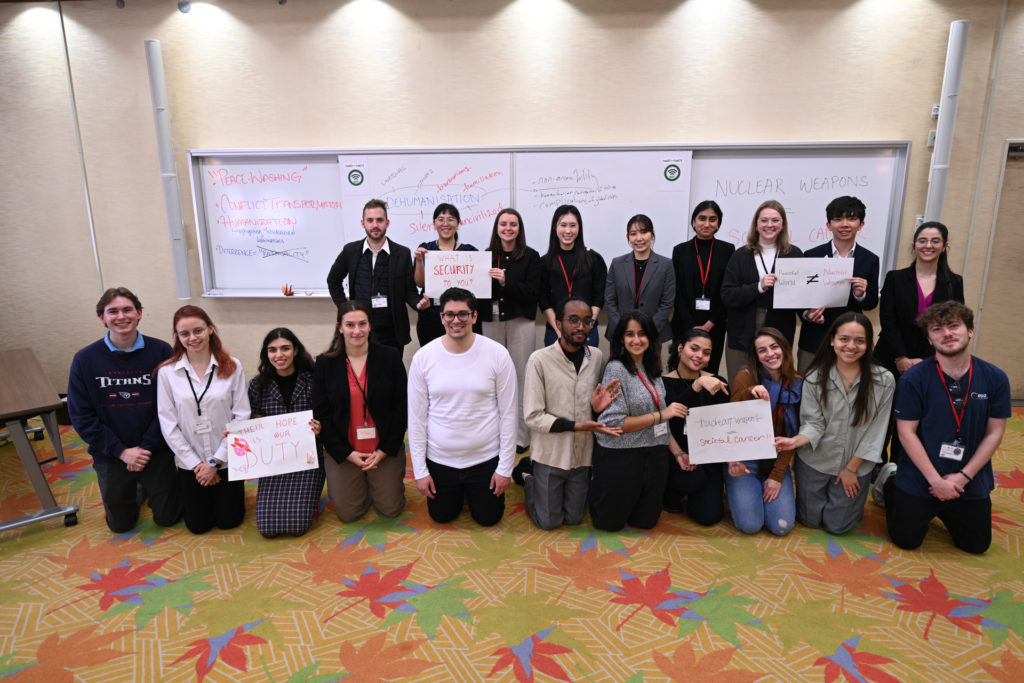
Other days
Webinar Session
Hiroshima Session
Tags associated with this article



